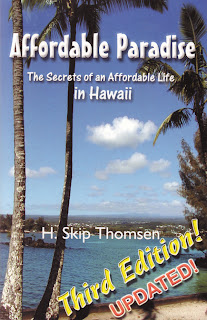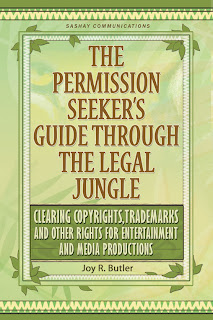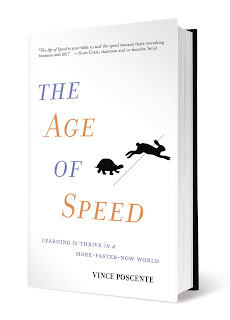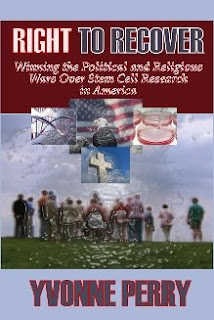 Affordable Paradise, ISBN: 0971853, Skip Thomsen
Affordable Paradise, ISBN: 0971853, Skip Thomsen
1 - How did you get interested in the topic that's featured in your book? I live in Hawaii, and for many years, my wife and I have been fielding certain questions from just about every contact we made on the Mainland. Most start out with, "I'm sooo jealous, but I could never afford to live in Hawaii." So we would go into our little speech about how it isn't that all expensive to live in Hawaii, and that we're living here on less than we spent on the Mainland. "No way," they'd exclaim, and then there began all the questions: What about jobs? Schools? Day-to-day living expenses? Medical care? Bringing pets? And on and on . . .
So one day, my wife suggested that since I am a writer and have a small publishing company, why not write a book that answers all of these continual questions? Good idea!
I wrote the First Edition of "Affordable Paradise" and no sooner had it hit the bookstores when Hawaii experienced one of the biggest real estate price increases ever. I soon started getting reviews about the obsolete values quoted in the book. The Second Edition timing was a repeat of the first, as the price increases were still going on. People were moving here in droves, buying up everything in sight.
The Third Edition was written just before the peak and came off the press right after, so those values are still pretty much in line with reality.
Such are the problems of writing a book that contains time-sensitive info! With each edition, I revised some info and added a lot more, mostly in response to reader's inquiries and suggestions. I'm actually considering avoiding actual real estate values entirely in the Fourth Edition, just to give it a bit longer shelf life! There is a lot of info in the book that has nothing to do with real estate, and that's what should be carrying the book anyway. Much of the new material is also in response to the rapidly changing demographic here on the Big Island, and how that was - and is - altering our beloved lifestyle.
2 - Tell us a bit about your background. What have you done in the past that relates to your book and that topic? I've lived in Hawaii for 14 years and managed to do it within a budget that was no more than I would have needed where I lived in Oregon, and certainly a lot less than where my wife (of ten years) lived in California. Certainly one can spend millions to live in Hawaii, and many do. But the point of my book was originally that it isn't necessary, and why all the hype about how expensive it is to live here doesn't apply if you are really looking for an affordable lifestyle. I've lived all my adult life by creating my own reality, earning my own keep without the benefit of a "job," and doing well at it. That's how to thrive in Hawaii, and I like to share what I've learned in all these years so that others can move forward without stepping (falling?) into all the same holes I've had to. The focus of the new edition will be leaning heavily toward the concept of "living aloha," and how this is essential if we are to keep Hawaii the place that's attracting all of these people to begin with.
3 - What advice would you give to someone who is interested in your topic? Read my book, of course! Plan your move. Learn all you can learn. Moving to Hawaii from the Mainland is not like moving from one Mainland state to another. It is way more like moving to a foreign country with foreign culture and foreign lifestyles.
4 - What do you see as the benefit to participating in groups and organizations? My first thought would be networking opportunities and the chance for personal and business growth. What are your reasons?What you pointed out, and again, the opportunity to learn from the experiences, good or bad of others. Also, there's a lot of power in numbers, and groups can get things done that would be insurmountable for individuals. Groups have clout.
I don't know what I'd do without Greenleaf Book Group, for example. Without them (or a similar organization), I would not have my small-publisher relationship with Ingram, and that would cost me a lot of sales.
5 - Who is the ideal person to read your book? If each person that reads this was going to recommend your book to one person, what sort of person would they want to chose? Anyone interested in moving to or living in Hawaii. Anyone already living here and feeling they can't afford to stay. The book has had reviews that pointed out it is also of value to those seeking an affordable vacation in Hawaii. It is especially useful to folks who aren't sure of how well they will be able to deal with such a different culture. Matter of fact, there's a whole chapter devoted to reasons why one might not want to live in Hawaii.
6 - What do you think ignites a person's creativity?Passion, passion, and did I say passion?
7 - What have you found to be the biggest stumbling block for people who want to start writing? Starting to write, oddly enough. What I recommend to folks who tell me that have something to say and are having trouble getting started, is this: Just start writing down anything that comes to mind. Don't ever fret about a "proper start" to a book, or even an article. Once you get a few thoughts down (hopefully into a word processor), they'll expand almost automatically. Reread what you have written. Edit it. Flesh it out. Each topic you put down will inspire others, until finally you'll have enough (often way too much!) for what you want to end up with.
Once you have all your thoughts down, create a folder for each topic. Then read what you have again, carefully, and proceed to cut-and-paste each piece of it into the right folder until there's nothing left that is not categorized.
Now you get to go into each folder and sort out those thoughts. Make them flow. Start out with a "hook," a line that makes the reader want to read the rest of the paragraph. Each paragraph should start with an interesting sentence and then the rest of the paragraph elaborates on that sentence. At this point, you can start to cut-and-paste each subject into your first-draft manuscript and create chapters. It's so important to have it all flow.
Hey, I was only supposed to offer a suggestion on getting started. But the deal is, it's this kind of structure that works for many writers to get them going and more importantly, keep them going. Lots of great writing has been abandoned just because the writer got so far lost in an unstructured manuscript. It's easy to get overwhelmed. Quite frankly, I have to really admire the writers who could put together a beautifully flowing, cohesive novel - and do it with a typewriter! How did they do that?!
8 - How would you suggest they can overcome that?See above!
9 - What do you find is the biggest motivator for people to succeed? Is it money, security, desire for fame or something else? My favorite saying is, "What we truly value, we do." That kind of invalidates all the excuses in the world for not doing what we say we'd really like to do. If we really, truly liked doing it, we would have a passion for doing it, and we would be doing it. It comes back to passion. It always does.
Money? Right. For most of us, I'm afraid writing is a labor of love. I feel blessed because I'm actually making a profit from my writing. Even when that happens, it's good to have another source of income. Remember, I said most of us. There are, of course, exceptions.
10 - Who is the "perfect" person to read your book? This may sound really strange, but to date, the most rewarding emails I receive from readers are those from people who tell me they were fully ready to sell everything and move to Hawaii, and after reading my book they changed their minds. We see the heartbreak (and sometimes financial disaster) of people who move here without knowing what they will be encountering. That's the real reason for "Affordable Paradise." The affordable part finds the audience I'm after and then I share with them what it will really be like living in Paradise. Hawaii is truly Paradise to some, but it is clearly not to everyone.
11 - Is there anything else you would like to share with us? Just that I'm glad to have this new forum in which to hopefully be able to network with others of similar interests and concerns. I wish I had had something like this when I started back in 1980. What I wouldn't have given for a mentor!
So mahalo and aloha!






